The journey to sobriety is a courageous one, and the first 30 days of recovery are some of the most critical—particularly for women. This foundational period can be both challenging and enlightening, offering a glimpse of what life in recovery can look like. If you’re just starting out or supporting someone through this transition, it’s helpful to know what to expect, where to find support, and how to honor your unique experiences as a woman.
1. Physical Changes and Detox
Hormonal Fluctuations
Women often experience more pronounced hormonal shifts when detoxing from substances such as alcohol or opioids. Your body may need extra time to recalibrate, especially if you’ve been using substances for a prolonged period. It’s common to feel fatigued, irritable, or emotionally sensitive. Be patient with your body; healing takes time.
Managing Withdrawal Symptoms
The intensity of withdrawal symptoms varies based on factors like length of use, quantity, and physical health. Common physical symptoms include:
- Headaches
- Muscle aches
- Nausea or vomiting
- Trouble sleeping
Medically supervised detox can help you manage these symptoms safely. Speak with healthcare professionals about any concerns, and follow their guidelines to ensure your comfort and well-being.
2. Emotional Rollercoaster
Expect Intense Feelings
In the absence of substances, emotions that were once numbed often resurface. You may experience sudden waves of sadness, anger, or even joy. While it can be overwhelming, these emotions are a natural part of the healing process.
Dealing with Guilt or Shame
Many women in early recovery grapple with guilt—perhaps about past actions, parenting challenges, or strained relationships. Acknowledge these feelings but resist the urge to let them define you. Recovery is about reclaiming your life, and self-compassion is paramount in helping you move forward.
3. Building a New Routine
Prioritizing Structure
Recovery thrives on routine. Establishing set times for meals, exercise, and rest can help stabilize your mind and body. Regular, healthy meals can help balance blood sugar levels and improve mood—an especially important consideration when you’re physically and emotionally vulnerable.
Mindful Mornings
Starting your day with quiet reflection, journaling, or meditation can set a positive tone. Even a simple five-minute practice of deep breathing can center you, help manage stress, and remind you of your reasons for choosing recovery.
4. Addressing Women-Specific Challenges
Relationships and Boundaries
Women often serve as caretakers, whether for children, partners, or aging parents. In early recovery, it’s important to set boundaries that protect your sobriety. Communicate your new schedule, needs, and limits with loved ones. It may feel uncomfortable at first, but honest communication will help you avoid people-pleasing or overextending yourself.
Self-Image and Body Positivity
Substance use can sometimes lead to body changes, and the process of detox can add fluctuations in appetite and weight. If body image issues arise, remember that your body is healing. Consider seeking support from therapists, nutritionists, or peers who can provide a balanced perspective. Learning to appreciate your body for its resilience is a powerful way to foster self-love.
5. Finding the Right Support
Women-Focused Therapy or Support Groups
Shared experiences can be especially helpful in early recovery. Seek out women-centric support groups—these safe spaces allow you to discuss gender-specific challenges, including navigating motherhood, maintaining relationships, or dealing with societal pressures.
Professional Guidance
Therapists, counselors, and recovery coaches trained to work with women can offer tailored support. They understand that emotional, social, and biological factors intersect uniquely in women’s recovery. Whether you choose individual therapy or group counseling, professional input can help you develop coping strategies that address your specific needs.
6. Cultivating Healthy Coping Skills
Emotional Regulation Tools
- Grounding Exercises: Techniques like the 5-4-3-2-1 method (naming things you see, hear, feel, smell, and taste) can quickly bring you back to the present moment.
- Journaling: Writing down your thoughts and emotions can help you process them and spot patterns in your triggers.
Physical Outlets
Regular physical activity—whether it’s yoga, jogging, or dancing—can improve mood and reduce stress. Consider joining a women-only fitness class or finding a workout buddy from your support network to keep you motivated.
7. Overcoming Early Triggers
Identifying High-Risk Situations
In the first 30 days, avoid environments or people that may encourage old habits. While it may be hard to distance yourself from certain social circles, it’s an essential step in protecting your sobriety.
Creating a Crisis Plan
Map out what you’ll do if a craving hits:
- Call a trusted friend or sponsor
- Engage in a grounding exercise or short meditation
- Distract yourself with a healthy hobby
Having this plan can make the difference between a momentary temptation and a relapse.
8. Celebrating Small Wins
Mark Your Milestones
Every day sober is a victory. If you’re comfortable, share your progress with supportive friends or a sponsor. Celebrating milestones—like a week, two weeks, or one month—builds self-confidence and keeps motivation high.
Positive Affirmations
Use affirmations to bolster your self-esteem. Simple phrases like, “I am strong,” or, “I am worthy of a healthy life,” can counter negative self-talk and serve as gentle reminders of your goals.
9. Looking Beyond the First Month
Setting Realistic Goals
While the first 30 days are crucial, remember that recovery is a lifelong journey. Slowly expand your horizons by setting goals around work, relationships, and personal growth. Avoid putting too much pressure on yourself; balance is key.
Maintaining a Growth Mindset
Think of challenges not as failures but as opportunities to learn. Reflect on what works for you, what triggers you, and how you can continue refining your coping strategies. Cultivating a growth mindset in recovery helps you adapt to life’s inevitable ups and downs.
A Note of Encouragement
You’ve already demonstrated tremendous courage by choosing recovery. The first 30 days can be both transformative and turbulent, filled with physical, emotional, and lifestyle changes. Remember that you are not alone; there are countless women walking this path alongside you. Seek out the support, resources, and professional guidance that resonate with your unique story. Every day you commit to your well-being is a day that propels you toward a healthier, more empowered life—one that you absolutely deserve.
You’ve got this. Embrace the challenges, celebrate the triumphs, and know that your first 30 days are merely the beginning of a beautiful, renewed journey toward the best version of yourself.
Contact Luna Recovery for Women today for help on your journey.


